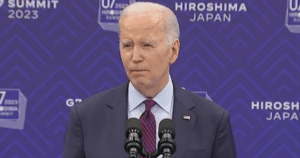Trump's Proposal to Make Canada a U.S. State Sparks Discussion
President-elect Donald Trump has stirred international discourse by reigniting a proposal for Canada to become the 51st state of the United States. The suggestion surfaced on the same day Canadian Prime Minister Justin Trudeau announced his resignation, highlighting the ongoing tensions between the two nations over trade and border control.
The call for Canada to join the United States was prompted by economic disagreements and security concerns following Trudeau's resignation.
The news broke early this week as Trump reiterated his idea of Canada merging with the U.S., citing potential benefits like reduced taxes and enhanced security against threats from Russian and Chinese naval forces. This notion aligns with Trump's longstanding stance on recalibrating U.S. trade relationships to address what he perceives as unfavorable trade deficits and unfair subsidies.
Trudeau's Sudden Resignation Adds Uncertainty
The announcement of Trudeau's departure came amidst declining approval ratings, exacerbated by economic challenges such as rising living costs and inflation. Pressure on Trudeau mounted as members of his own party, alongside ministers and opposition leaders, called for his resignation due to these domestic hurdles.
A crucial turning point occurred with Finance Minister Chrystia Freeland's resignation, whose critical letter fueled political unrest within Trudeau's administration. In light of these developments, Trudeau declared his intent to step down after the Liberal Party selects a new leader. He emphasized the importance of offering Canadians a clear choice in forthcoming electoral contests.
The Backdrop of Tense U.S.-Canada Relations
In late November, Trudeau met with Trump at Mar-a-Lago, reportedly responding to Trump's threats of imposing 25% tariffs on Canadian exports. These threats were rooted in concerns over illegal immigration and drug trafficking across the northern border. During the meeting, Trump emphasized the need for cooperative efforts to tackle issues like the fentanyl crisis impacting both nations.
Trump's persistent push for a fusion with Canada also stems from his frustration with the existing trade dynamics. The U.S. leader articulated his stance on social media, arguing that the U.S. should not bear the burden of "massive trade deficits" required to sustain Canada's economy. Trump claimed that Trudeau was aware of these concerns, which purportedly influenced his resignation decision.
Mixed Reactions from Both Nations
While Trump's suggestion might seem unconventional, he noted that many Canadians are supportive of becoming part of the U.S., referencing nascent sentiments toward such an arrangement. However, this assertion remains unsubstantiated and faces scrutiny from political analysts and citizens alike.
Mixed receptions are evident domestically and internationally, with some viewing Trump's suggestion as untenable given Canada's strong national identity and governance structures. Moreover, historical complexities between the two countries further complicate the viability of such a merger.
Resignation Impact on Canadian Politics
Trudeau's voluntary exit from Canadian politics marks a pivotal moment, potentially reshaping the nation's political landscape. It creates opportunities for various political factions to vie for leadership and influence Canada’s future direction.
The process of choosing a successor is underway, with Trudeau having requested the Liberal Party's president to commence a national search for new leadership. This decision reflects Trudeau's recognition of the internal challenges hindering his ability to serve as a unifying leader for his party and country.
Conclusion of a Diplomatic Chapter
As Trudeau prepares to exit the political stage, attention turns to how his departure will shape Canada’s interactions with global leaders, especially under Trump’s incoming administration. The evolving dynamics underscore the intricate balance of addressing economic policies, trade relations, and security concerns across the North American continent.
Washington and Ottawa's future relations remain uncertain as both countries adjust to new leadership roles and policy priorities. Observers will closely monitor how Trudeau's resignation and Trump's proposals impact the broader geopolitical landscape, marking the end of one diplomatic chapter and the tentative beginning of another.




